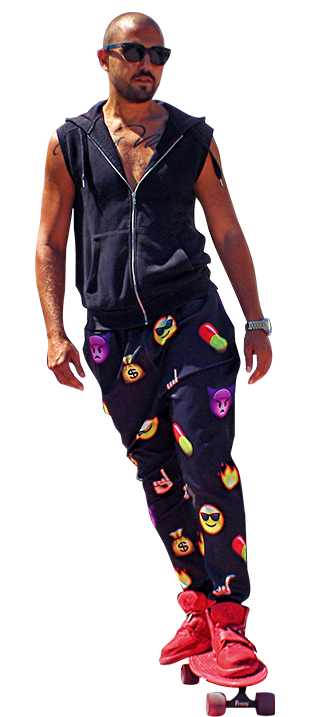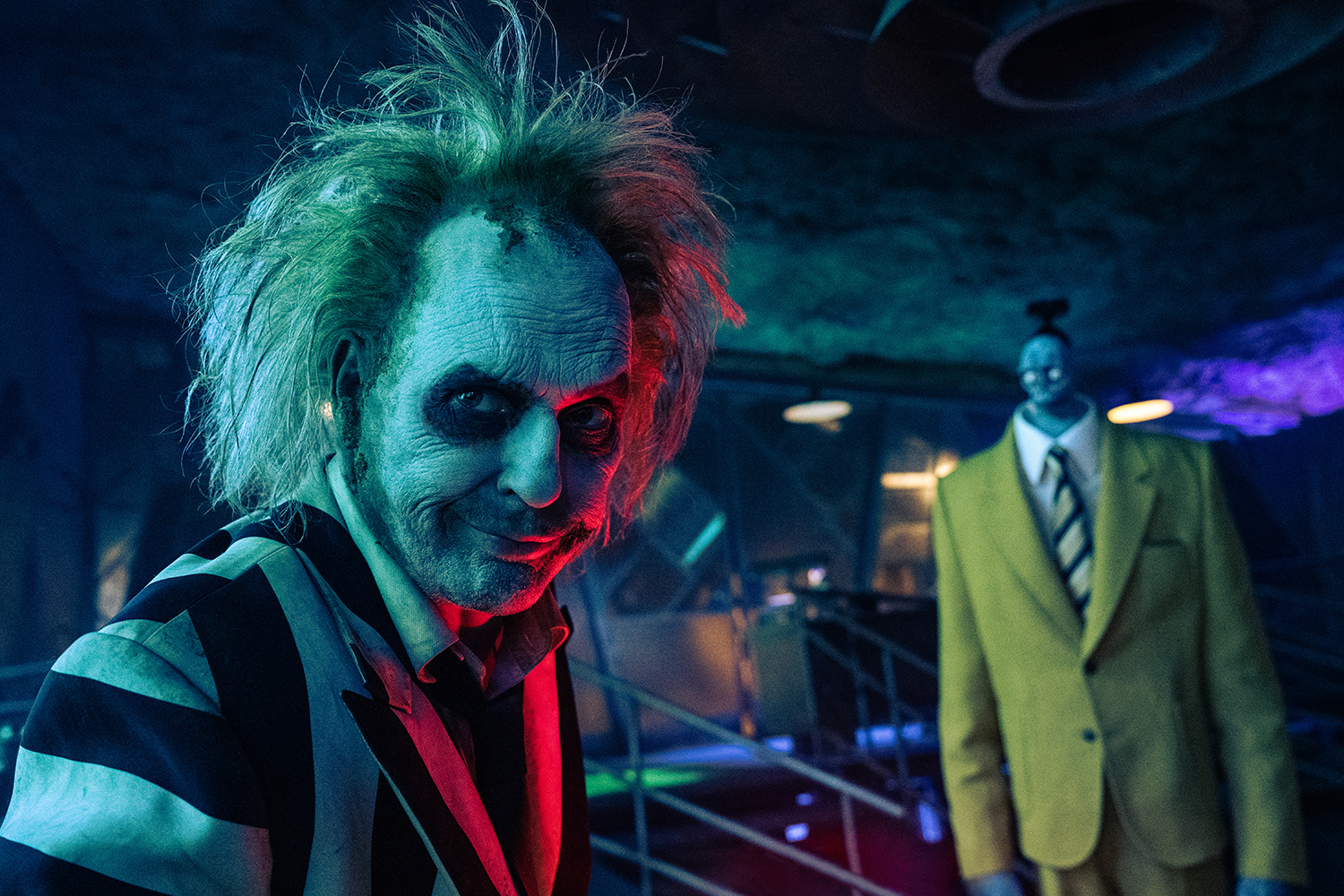
Michael Keaton as Beetlejuice in a scene from "Beetlejuice Beetlejuice." (Photo by Parisa Taguizadeh/courtesy of Warner Bros. Entertainment Inc.)
It appears that apparitions are in. Two new movies dealing in supernatural affairs are the talk of the town this month. One is a Netflix hit that takes the building blocks of a Tyler Perry production and gives them an unholy makeover. The other is a highly buzzed-about follow-up to a beloved 1980s horror comedy, fresh from its standing ovation-garnering premiere at the Venice Film Festival.
The cheeky demonic duo are getting spooky season off to an early start, as well as giving moviegoers a seamless segueway from summer to fall. Which one rises to the occasion and which one is condemned to an early grave in terms of its carbon footprint? Keep reading, if you dare.
“Beetlejuice Beetlejuice”: The nostalgia wave hitting multiplexes this year has been predominantly a scourge, but it has also yielded some satisfying strolls down memory lane. Where, you might be inclined to inquire, does Tim Burton's highly anticipated legacy sequel fall on this scale? It takes some time for a definite answer to come into focus, and it's likely not one you want to hear.
Because “Beetlejuice” number two is flat soda, a musty retread of what gave the original its irreverent kick.
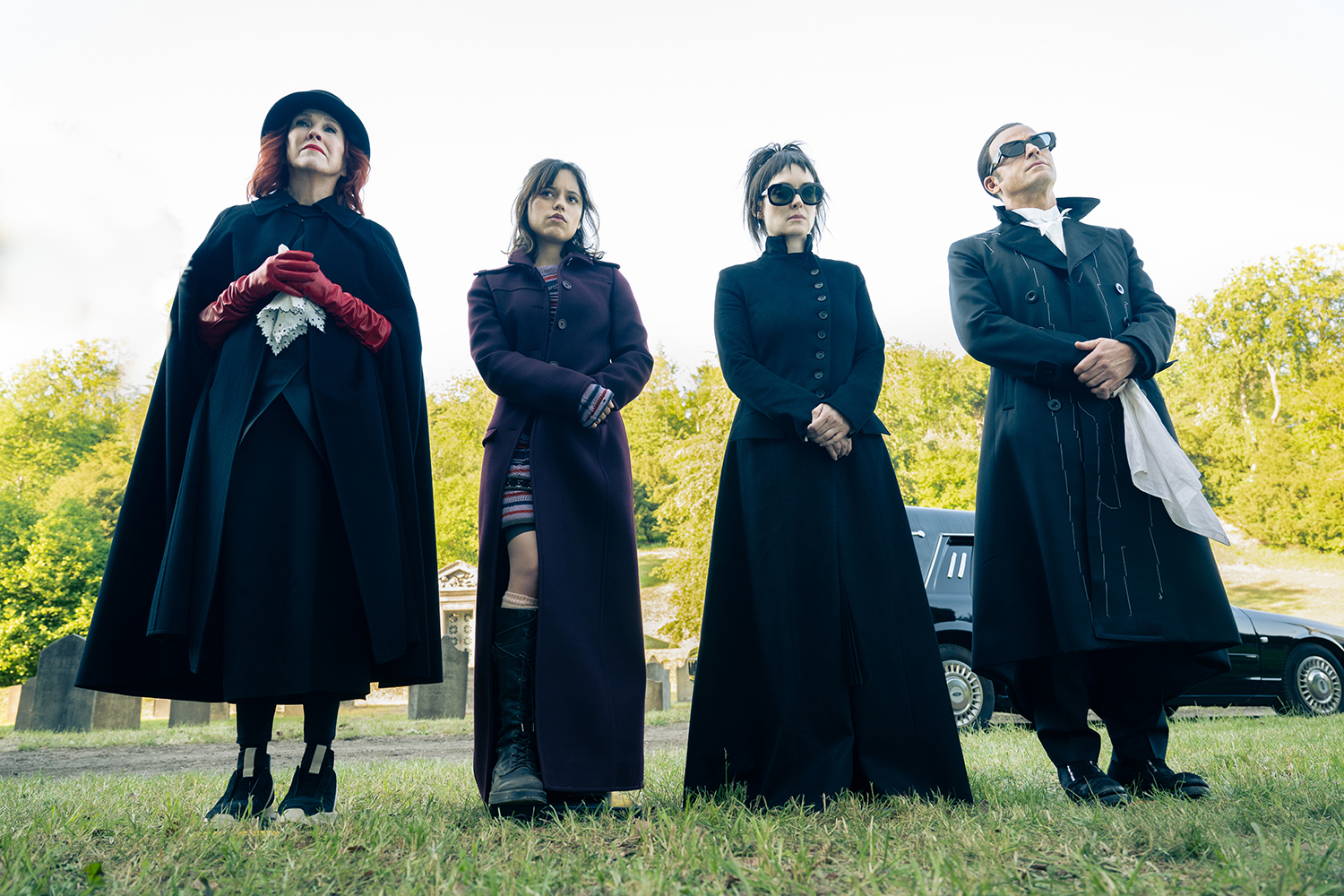
Catherine O'Hara as Delia Deetz, Jenna Ortega as Astrid Deetz, Winona Ryder as Lydia Deetz and Justin Theroux as Rory in a scene from "Beetlejuice Beetlejuice." (Photo by Parisa Taguizadeh/courtesy of Warner Bros. Entertainment Inc.)
This might come as no surprise to those of you who have given up on the “Edward Scissorhands” auteur following at least two decades' worth of output that could charitably be called uneven, his kickass screen adaptation of “Sweeney Todd” a rare oasis in an otherwise arid desert. (I even didn't mind his much ballyhooed “Dumbo” remake, mostly because it refuses to be a photorealistic facsimile of the original.) To longtime fans like yours truly, who will always show up expecting the best from Burton, even though we continue to get burned, it hurts to see this champion of misfits and nonconformists strike out yet again.
But “Beetlejuice Beetlejuice,” a sequel so unmemorable they named it twice, doesn't start out as a fizzle. Actually, Act 1 is rather perky, a cute and bouncy start down a road that leads to pain and disappointment.
It's been 36 years since goth girl Lydia Deetz (Winona Ryder) narrowly escaped forced nuptials with the titular afterlife trickster (Michael Keaton) after she moved into a haunted New England house. Lydia, a self-described “psychic mediator,” has since become a TV personality with one of those paranormal reality series that are just begging to be ridiculed. A couple of decent laughs ensue.
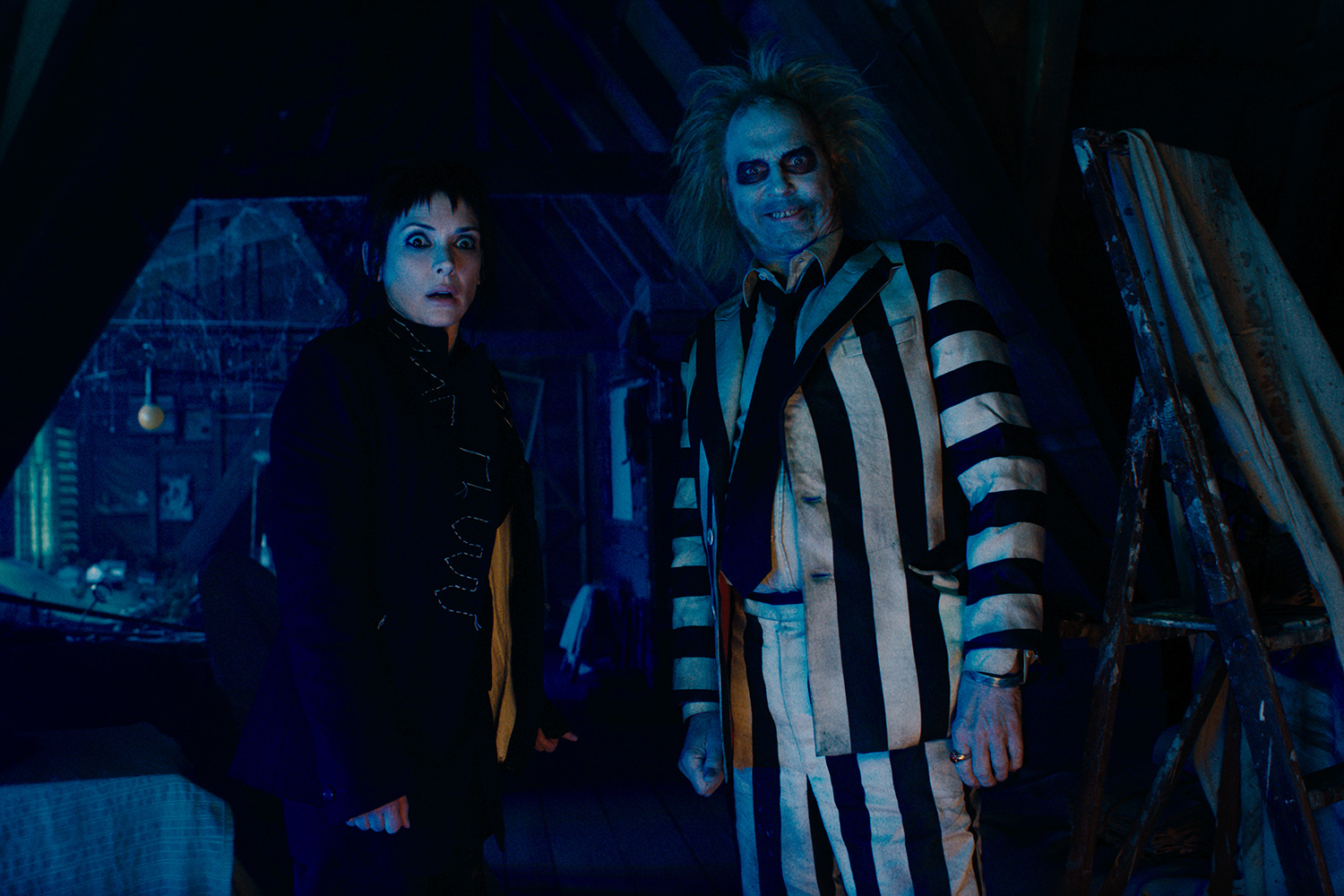
Winona Ryder as Lydia Deetz and Michael Keaton as Beetlejuice in a scene from "Beetlejuice Beetlejuice." (Photo courtesy of Warner Bros. Entertainment Inc.)
But all is not well in Lydia's world. She fears she's still being stalked by He Who Must Not Be Named Three Times, her smooth-talking manager Rory (Justin Theroux) is itching to move their off-screen romance to the next level, and her daughter Astrid (Jenna Ortega), a pouty and disaffected teen whose sour demeanor means the apple doesn't fall far from the tree, won't even take her calls.
Then tragedy strikes. Lydia's dad Charles meets an abruptly gruesome demise, described with breathless nonchalance by her stepmother, ditzy artiste Delia Deetz (Catherine O'Hara). The swift dispatching gives Burton a chance to include Charles while sidestepping the controversy surrounding the actor who played him.
Jeffrey Jones, probably better known as the hapless high school principal in “Ferris Bueller's Day Off,” was arrested in 2002 on child porn possession and soliciting charges. He was required to register as a sex offender and has been embroiled in legal troubles ever since.
Burton's affectionate, creatively rendered tribute to Jones' character is one of the few things “Beetlejuice Beetlejuice” gets right. Kudos to screenwriters Alfred Gough and Miles Millar for finding a way around a tricky situation.
But the creativity and buoyancy that holds the film's early scenes aloft begin to peter out, as Burton and his collaborators saddle the narrative with more and more new characters and plotlines. There's enough story material here to fill an entire season's worth of “Wednesday,” the hit Netflix series starring Ortega as the iconic Addams malcontent, for which Gough and Millar are showrunners, and for which Burton directed four out of Season 1's eight episodes.
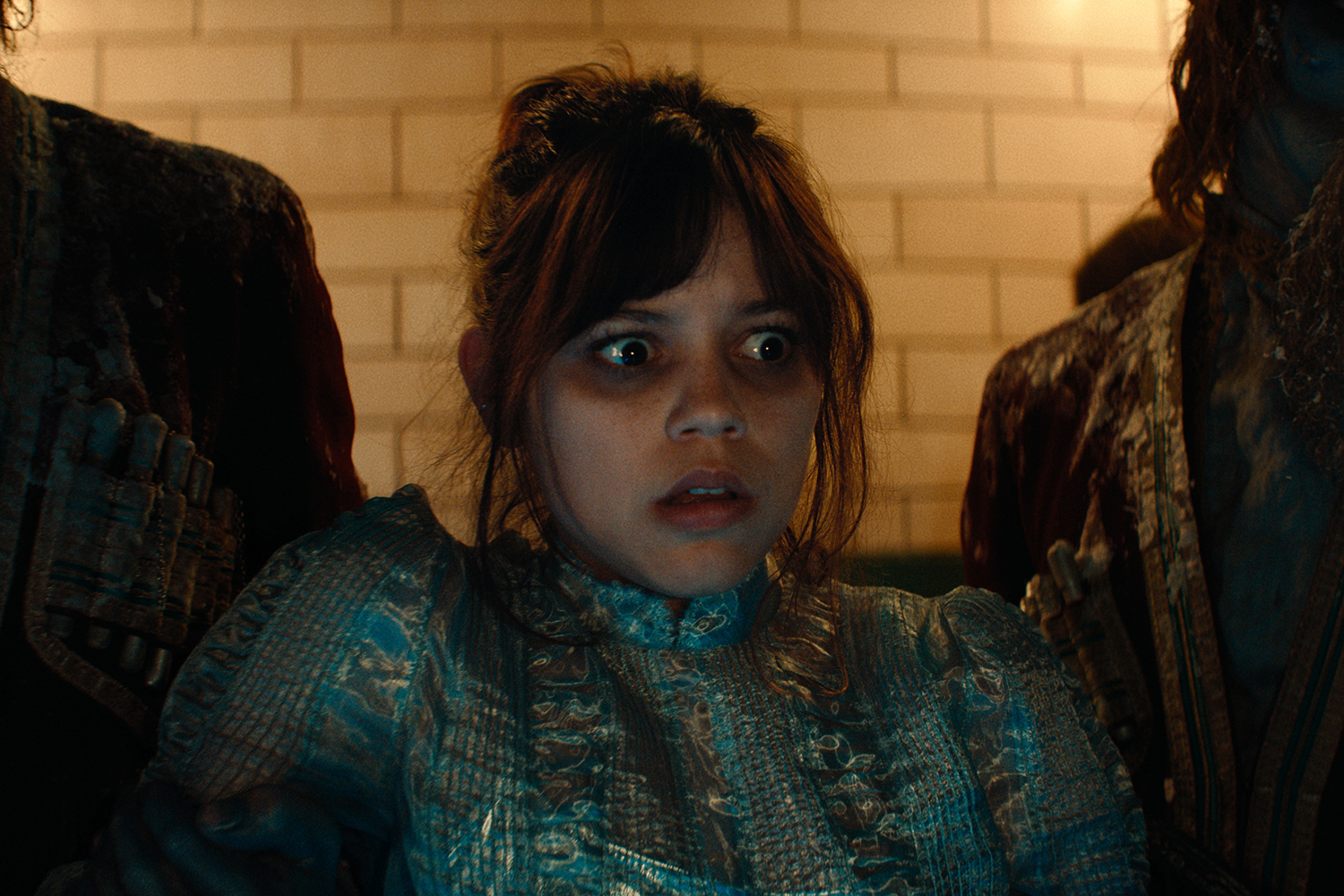
Jenna Ortega as Astrid Deetz in a scene from "Beetlejuice Beetlejuice." (Photo courtesy of Warner Bros. Entertainment Inc.)
Tackling a 104-minute sequel like streaming content is a big part of the problem here, because it dilutes the most interesting story strand: Lydia's justifiable paranoia that the past is not done with her and her efforts to rebuild a relationship with her resentful daughter. Instead, “Beetlejuice Beetlejuice” throws gags and complications our way to see what might stick, but some of the running jokes, including a fixation on disco and funk, enhance rather than dispel the lingering staleness. New additions like Monica Bellucci and Willem Dafoe don't stand a chance. They get lost in the shuffle.
There have been some grumblings that Burton doesn't use Keaton enough, but it's not necessarily a bad thing that there are limited doses of Beetlejuice in “Beetlejuice Beetlejuice” since, as you may recall, the wicked grifter was also a supporting character in Part 1. Besides, Keaton is stuck with some of the most tired comedic bits, surrounded as his character often is with shrunken-head pencil pushers in a lazily conceived office setting. His scenes can't quite shake off the stench of dinner theater.
But what's most dispiriting is the way the film lets Ortega down. The star commanded the small screen on “Wednesday,” but as Astrid, she sees her character's agency gradually taken away from her, until she's little more than a trouble magnet with unresolved emotional scars. You get the feeling she finds herself in situations from which she needs to be rescued in order to push the busy plot forward. There's no damn good reason why her troubles entail falling prey to Burton's hidden villain trope.
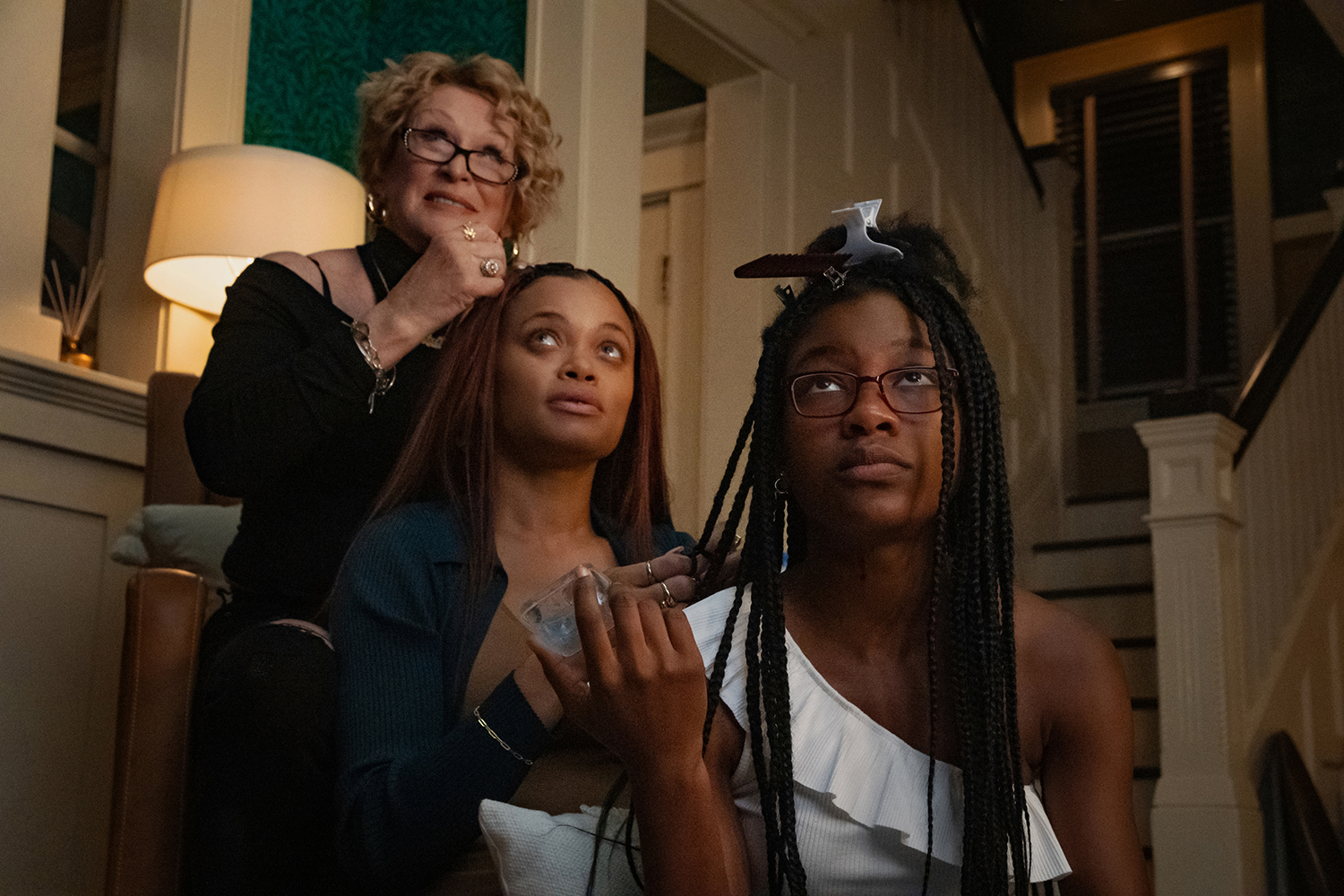
Glenn Close as Alberta, Andra Day as Ebony and Demi Singleton as Shante in a scene from "The Deliverance." (Photo by Aaron Ricketts/courtesy of Netflix)
Sitting through “Beetlejuice Beetlejuice” as it sloppily juggles its slapped-together storylines, you want to sit Burton down and say one word: enough. Not all hurt people hurt people. Not all good looking folks whose actions appear to be kind and benevolent conceal sinister motives. You have created these unique, iconic characters, given a voice to those who have too often been tossed to the sidelines. You have placed those who have been marginalized center stage and shone a spotlight. Now it's time to let go.
Revisiting past successes can be an invigorating experience, but not when doing so becomes a crutch that leaves a good filmmaker hanging in suspended animation, and I say this as someone who has happily reviewed Tim Burton movies since “Mars Attacks!” in 1996. “Beetlejuice Beetlejuice,” aggressively kooky but not particularly spooky, lures you with the promise of a good time, then assaults you with its noisy wheel-spinning, until it evaporates with the haste of an ill-humored ghost who has opted to move on. It's time for Burton to follow suit.
“The Deliverance”: Burton isn't the only renowned director dealing with an unwanted demonic presence. “Precious” and “The Butler” director Lee Daniels gets his “Exorcist” freak on in this nifty horror movie bent in the shape of a domestic melodrama. The genre-splicing awakens the filmmaker's naughty side, to which this reviewer can only say yes, please.
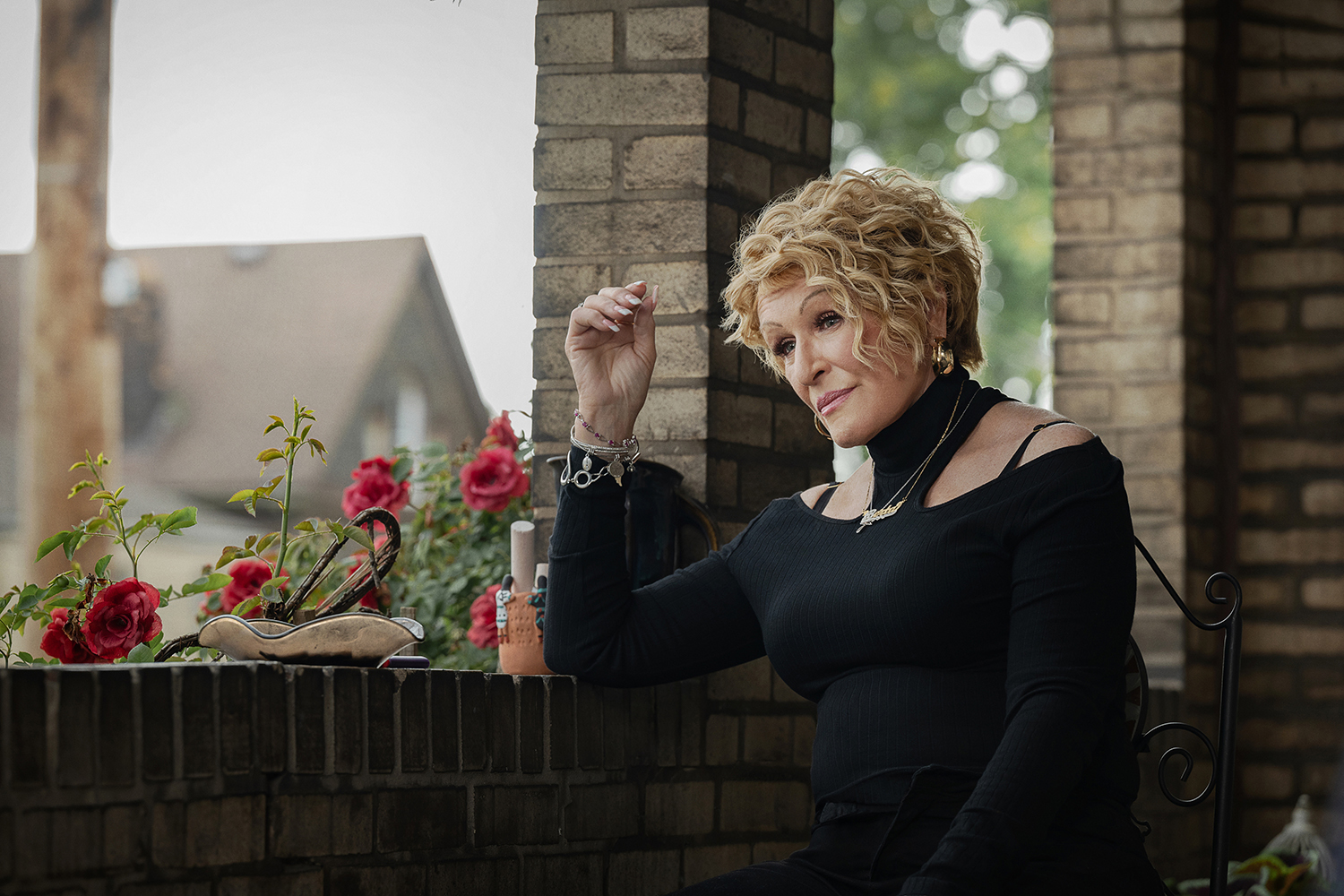
Glenn Close as Alberta in a scene from "The Deliverance." (Photo by Aaron Ricketts/courtesy of Netflix)
The story, inspired by a real Midwestern family's reported brush with an evil spirit, centers around Ebony (Andra Day), who has moved her children Nate (Caleb McLaughlin), Shante (Demi Singleton) and Andre (Anthony B. Jenkins) to an old Pittsburgh house circa 2011. Tagging along to help out, and perhaps mend broken fences, is Ebony's (Caucasian) mother Alberta (Glenn Close). The children's dad is off fighting in Iraq. His absence, and Ebony's drinking, appear to build a rift between the struggling matriarch and the family she's barely able to keep together.
And that's not even taking into consideration the strange sounds this creaky house emanates or the weird things for which the kids can't come up with a rational explanation. Ebony catches little Andre doing what she thinks is talking to himself. But we all know there's someone there we cannot see, and it becomes clear that in Andre, Daniels has found his very own version of “Poltergeist's” Carol Anne.
But what's refreshing about “The Deliverance” is how Daniels, working from a screenplay credited to David Coggeshall and Elijah Bynum, delays focusing on the supernatural elements for as long as he can, the better to explore this household's crises. Ebony's temper flares at the most inopportune times, drawing concern from her social worker, Cynthia Henry (Mo'Nique), who sees the prospects of Ebony being able to hold on to her children dwindling by the day.
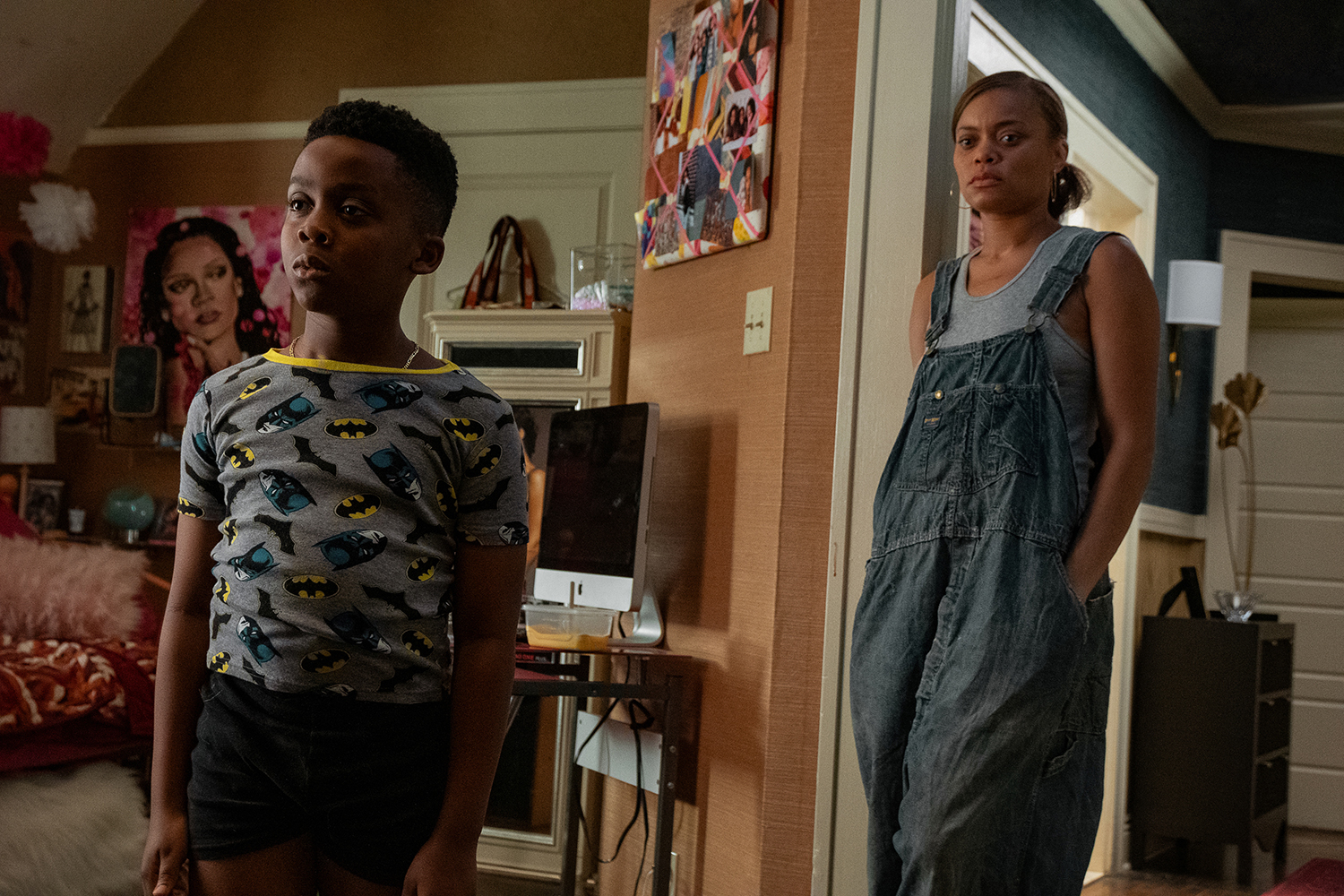
Anthony B. Jenkins as Andre and Andra Day as Ebony in a scene from "The Deliverance." (Photo by Aaron Ricketts/courtesy of Netflix)
But where “The Deliverance” hits paydirt is in portraying the frayed relationship between Ebony and Alberta. Even more horrific than being terrorized by a malevolent spirit is being terrorized by your own flesh and blood, Daniels suggests, and the push-pull conflict between mother and daughter shepherds the film over its rather conventional but still thoroughly entertaining handling of its pulse-quickening frights. The film eventually bares its demonic possession fangs, including one of the best jump scares I've experienced this year to date, and its emphasis of Christianity as a force to drive out an unholy force suggests what a Tyler Perry potboiler would feel like with a dollop of Blumhouse-style mayhem, only perhaps more competently lensed.
But Perry would never let one of his movies get this profane, and “The Deliverance” is dirty. Profoundly, unabashedly tawdry. With her clipped eyebrows and revealing wardrobe, Alberta has more game than women half her age. Close tears into the role with gusto, walking a fine line between oh-no-she-didn't camp and the gravity of reconciling with the skeletons in her past. Day is every bit her equal, harnessing Ebony's rage and maternal instinct like a weapon. Also making a strong impression is Aunjanue Ellis-Taylor (“King Richard”) as a reverend who helps Ebony in her quest to stop a scheming, f-bomb spouting demon.
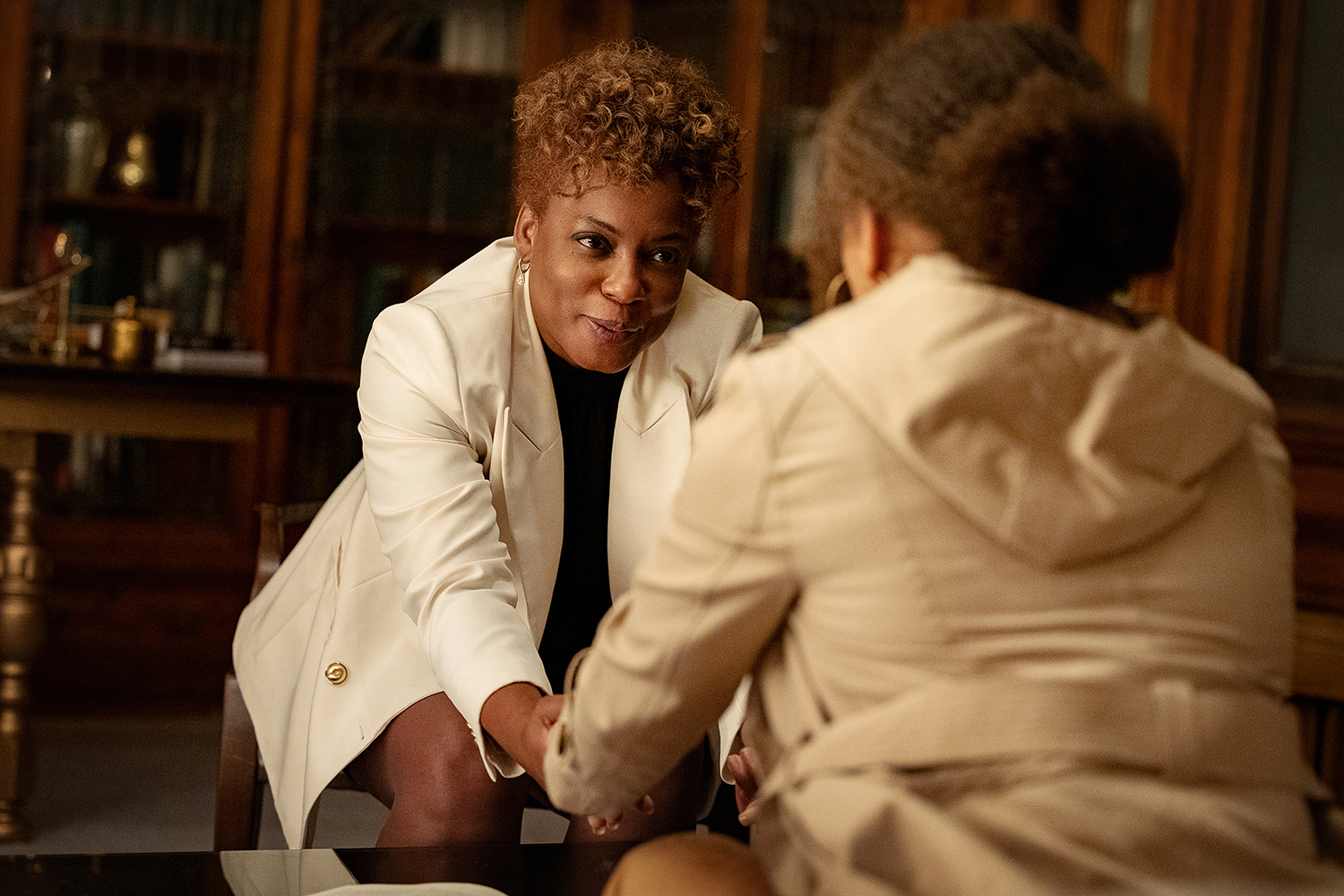
Aunjanue Ellis-Taylor as Rev. Bernice James, Andra Day as Ebony in a scene from "The Deliverance." (Photo by Matt Miller courtesy of Netflix)
Daniels is in unhinged mode here, reveling in the disreputable, R-rated trappings of the material the same way he did in “The Paperboy,” his criminally underrated Florida-set neo-noir, which features a scene where Nicole Kidman pees on Zac Efron to relieve his character's jellyfish sting. The Oscar-nominated filmmaker tackles “The Deliverance” with the same lowbrow abandon. This is trash. Tasty, succulent trash.
“Beetlejuice Beetlejuice” is now showing in wide release, including IMAX and Dolby Cinema engagements at AMC Aventura and AMC Sunset Place 24. It is also showing at the AutoNation IMAX at the Museum of Discovery and Science in downtown Fort Lauderdale. “The Deliverance” is now streaming on Netflix.




